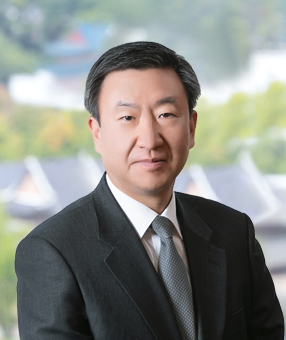Recently, driven by the new government’s policy direction and concerns regarding the deterioration of the financial soundness of companies invested in by private funds, numerous amendments to the Financial Investment Services and Capital Markets Act (“FSCMA”) have been proposed and enacted. As a result, significant changes to regulations related to collective investment schemes (“funds”) are anticipated. Please refer to the following for further details.
|
1. |
Passage of FSCMA Amendment Introducing BDCs |
-
Legal Basis and Requirements for BDCs (FSCMA Amendment Articles 9(30), 9(31), 229(6), and 229-2)
BDCs are newly introduced public funds that must diversify investments with more than 50% (and exceeding a certain ratio) of their total assets in high-potential venture companies (“main investment target companies”). BDCs must be non-redeemable, with a term of at least five years, and, in principle, must be listed on the stock exchange within 90 days of establishment. They must also require a certain minimum subscription amount—set at no more than KRW 50 billion.
The Financial Services Commission (“FSC”) is considering stipulating in the Enforcement Decree of the FSCMA that (i) at least 60% of assets must be invested in main investment target companies, (ii) such main investment target companies include unlisted companies (including venture companies), KOSDAQ-listed companies, venture investment associations, new technology investment associations, and private funds specializing in startups and ventures, and (iii) the minimum subscription amount is set at KRW 30 billion or more.
-
Licensing Requirements for BDC Managers (FSCMA Amendment Article 12(2)6)
Entities intending to establish a BDC must obtain a license for operating such companies. Qualification requirements are similar to those for financial investment businesses. However, in order to encourage participation by a wide range of management entities, the requirements for large shareholders are relaxed—specifically, the same requirements that apply to add-on licenses for financial investment business operations will apply in this context.
The FSC has stated that it will consider allowing a wide range of management entities, including venture capital firms, in addition to existing public fund managers, at the licensing stage. However, securities companies will be excluded due to potential conflicts of interest between proprietary and customer assets.
-
BDC Operating Regulations (FSCMA Amendment Articles 81(1), 81(5), and 81(6))
When BDCs invest in main investment target companies, separate asset management regulations apply, rather than the standard regulations for public funds. BDCs may invest up to 10% of their assets in stocks and 10% in non-stock securities (plus loans) of any single company, and up to 50% of the total shares issued by any one company. Loans to main investment target companies are allowed up to a certain percentage, provided they do not exceed 50% of the total BDC investment in such companies, and at least 10% of the BDC’s total assets must be held in safe assets such as government bonds or deposits.
The FSC is considering capping loans to main investment target companies at 40% of the total BDC investment in such companies in the Enforcement Decree.
-
Enhanced Investor Protections (FSCMA Amendment Article 229-2, Etc.)
In addition to protections applicable to public funds, BDCs will be subject to additional investor protection measures—reflecting the unique nature of their investment assets. These include mandatory minimum holdings (i.e., seeding) by the BDC manager, quarterly fair value assessments, pre-evaluation of the growth potential of main investment target companies by external experts, and mandatory disclosure of material business matters.
The FSC is considering requiring BDC managers to maintain a minimum holding ratio of 5% and recognizing bond evaluators, accounting firms, credit rating agencies, appraisal firms, technology credit bureaus, financial institutions, public agencies, and the Korea Exchange as external experts.
With this amendment, expectations are high for the activation of venture capital supply to innovative companies. The FSC has announced plans to promptly revise the Enforcement Decree, including licensing standards, to ensure a smooth implementation, and to discuss tax incentives with relevant authorities. As the Enforcement Decree will flesh out more detailed rules on BDC establishment and management, those considering BDC formation should monitor developments closely and actively communicate opinions to the FSC during the legislative process.
|
2. |
Proposed Amendments to FSCMA on Private Funds |
-
Strengthened Disclosure Obligations: Obligations to prepare and provide quarterly asset management reports, submit quarterly business reports, and have fund assets audited—previously only required for public funds—will now also apply to private funds.
-
Increased Operational Regulation: The leverage cap will be lowered from 400% to 200%. When investing for management participation, private funds must hold their equity stake for a certain period. When deciding on asset outflows from a target company, voting rights may be restricted for a certain period. New obligations will require public disclosure of the fund’s financial status and any fees received by the asset manager.
-
Enhanced Internal Controls: Private funds will be required to establish systems to prevent conflicts of interest in transactions with target companies, and will have to report certain large internal transactions to the FSC. Specifically, institutional private funds will be required to report leveraged buyouts, asset disposals, dividends, and conflict-of-interest transactions at target companies to both limited partners and the FSC. In addition, the FSC will be granted powers to order corrective measures and dissolution.
These amendments are currently pending in the National Policy Committee. With the new government and financial regulators showing significant interest in reforming private fund regulations, and considering that parts of these amendments may restrict fund operations, it is crucial to monitor legislative developments closely and actively engage in related public discussions.








